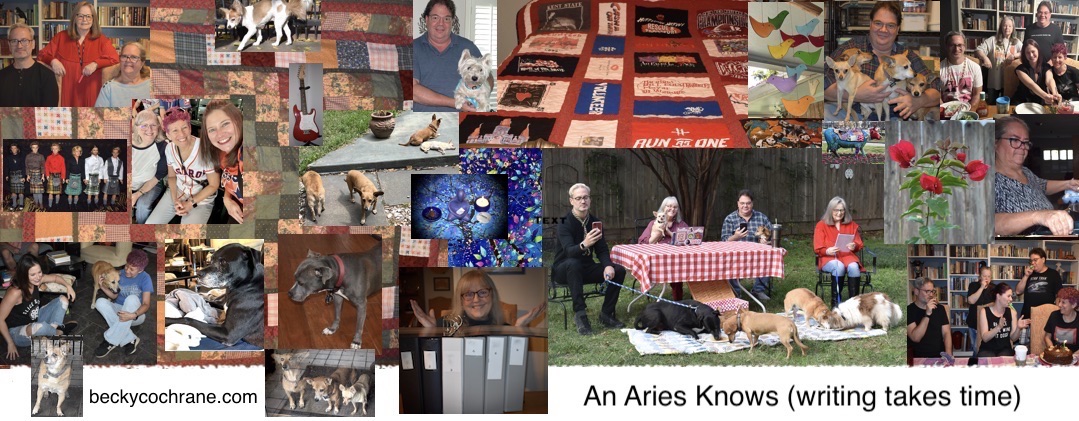Back in the Neo Proterozoic Era, I knew someone whose heart filled with resentment each time she heard about someone else’s good fortune. A new baby, a new house, a promotion, a new car, an unexpected acquisition of money–anything like that would make her say things about how some people had all the luck and how hard and without good things her own life was. I would watch harsh lines settle over her face and think, That’ll be her face when she gets old, full of bitterness and frustrated longing. Sometimes I’d attempt to point out the great things about her life–her children, her grandchild, her lovely home in an affluent neighborhood, the husband who doted on her. This only made things worse, so I learned to keep my mouth shut. Except while she complained, I’d send silent thank-yous out to the universe for all the positive parts of her life, as if doing so might protect her from those malevolent forces that seem like an irate parent: “I’ll give you something to cry about!”
When I was young, I was taught that the difference between envy and jealousy is that envy is what you feel when you yearn to have what others have, and jealousy is when you not only want the same things others have, but you don’t want them to have those things. Both of those feelings can be toxic to everyone (though, arguably, envy might motivate a person to work toward an accomplishment). Some people seem to think there is a finite amount of everything good: If someone else has or gets something, it means less for everyone else. I sometimes see this thinking in creative people: X is hogging all the awards and acclaim and advances, so the rest of us get nothing!
It’s hard sometimes when people all around us seem to have an abundance of good things–not only material things, but friends, good health, happy relationships, jobs they love, contentment, talent, success–while we seem to struggle, experience setbacks and losses, and face hurts we didn’t expect. Even when we recognize that others have far less than we do, or deal with worse struggles and harder challenges, we can still forget to keep our focus on what enriches our lives.
I’ve always thought that’s the trick to living a life of gratitude–redirecting our focus to what’s positive, what’s working, what’s good. I received a couple of books that were on my Christmas list that I’m hoping will help me make 2013 a year of thankful living. Along with those, I’m using a blank book Lynne gave me for Christmas in 2011 with the plan of recording some of the exercises that are in Lesowitz’s and Sammons’s books. From time to time I may share things from the books here.

Happiness is not so much in having as sharing. We make a living by what we get, but we make a life by what we give.–Norman MacEwan

I really appreciate your insights here. Gratitude is the key to so much, isn’t it? Gratitude, and resisting the inclination to compare ourselves to others (which often leads to dissatisfaction), and loving others so much that we wish nothing but the best for them and rejoice with them at the good in their lives. Some days it’s a tall order, but I believe it’s the way to be.
Thank you. And I believe you’re right on all counts.
I had a prof. in seminary who consistently reminded us, “Gratitude is largely an exercise of one’s memory.”
Wise words. Thanks.
I have to say I often experience feelings of envy when reading the journals of others – something which I’m sure is clearly evident to those reading my comments and own journal. I’m not proud of it, but I recognise it. I’m trying to be better.
It’s just part of being human, I think, to feel that way. The older I get, the more I realize that even lives that seem the most charmed or successful are the result of struggles and hard work–and they carry often invisible pains and griefs.